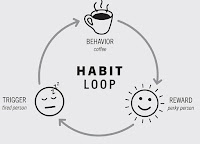Getting past your weight loss plateau
5 Reasons you have hit a plateau in your weight loss journey...
When trying to lose weight, many people expect steady progress. But health issues—ranging from medical conditions to hormonal imbalances—can slow, stall, or even reverse weight loss despite effort.
Here are some of the conditions that could be leading to your weight loss plateau:
1. Medical Conditions That Can Affect Weight Loss
Metabolic and Hormonal Disorders
- Hypothyroidism (underactive thyroid): Low thyroid hormones reduce metabolism, leading to fatigue and weight gain despite calorie restriction.
- Polycystic Ovary Syndrome (PCOS): Common in women; causes insulin resistance, hormonal imbalance, and irregular periods, making fat loss harder.
- Cushing’s syndrome: Excess cortisol increases fat storage, especially around the abdomen.
- Diabetes & Insulin resistance: Insulin promotes fat storage and can slow fat loss when levels are chronically high.
Mental Health Conditions
- Depression & Anxiety: Can alter appetite (overeating or undereating) and affect energy for exercise.
- Sleep disorders (sleep apnea, insomnia): Poor sleep disrupts hunger hormones (ghrelin, leptin) and raises cortisol, leading to cravings and stalled weight loss.
2. Medication Side Effects That Influence Weight
Some prescribed medicines can slow metabolism, increase appetite, or cause fluid retention:
- Antidepressants : Can increase appetite or cravings for carbs.
- Antipsychotics: Strongly linked to weight gain.
- Corticosteroids : Increase water retention, appetite, and fat deposition.
- Diabetes medications : May cause weight gain by promoting fat storage.
- Beta-blockers : Slow heart rate, reduce exercise tolerance, and may decrease metabolism.
- Antihistamines : Can increase appetite via effects on brain histamine pathways.
3. Water Retention (Edema) and Its Impact
Weight fluctuations aren’t always fat gain—they may be water retention, caused by:
- High sodium intake (salty foods, processed meals).
- Hormonal shifts (especially in women around menstruation, ovulation, or menopause).
- Medications (steroids, NSAIDs, some birth control).
- Inflammation or injury (the body retains water during healing).
- Stress & cortisol: Causes fluid retention and fat storage.
👉 Solution: Adequate hydration, reduced processed food/salt, balanced electrolytes, exercise, and managing stress.
4. Women-Specific Issues Affecting Weight Loss
- Menstrual Cycle: Weight often fluctuates 1–3 kg due to hormonal water retention.
- Pregnancy & Postpartum: Hormonal changes, breastfeeding, and recovery affect metabolism. Weight loss can be slower but steady once health stabilizes.
- Perimenopause & Menopause: Lower estrogen levels increase fat distribution around the abdomen, decrease muscle mass, and slow metabolism.
- PCOS: Makes weight loss harder, but lifestyle interventions like strength training and eating clean are key.
- Birth Control Pills/Devices: Some forms may cause water retention and appetite changes.
5. Lifestyle Challenges: Busy Schedules and Diet Adherence
Weight loss is not easy - you did not gain the weight overnight, so do not expect to lose weight also fast.
It will demand changes to your schedule and prioritizing healthy habits.
Even when there are no underlying health problems, everyday lifestyle challenges can interfere with weight loss efforts:
- Busy work schedules: Long hours or shift work often lead to skipped meals, overeating late at night, or dependence on takeout and processed foods.
- Stress eating: A packed schedule and high stress can increase cravings for quick, high-calorie “comfort foods.”
- Lack of meal preparation: Without planning, it’s easy to default to fast food or snacks instead of balanced meals.
- Irregular eating patterns: Skipping meals can lead to overeating later, making calorie control difficult.
- Difficulty sticking to strict diets: Overly restrictive diets are hard to maintain, often leading to cycles of dieting, slipping, and regaining weight.
- Limited time for exercise: Busy schedules may push workouts to the bottom of the priority list.
👉 Solutions: Focus on realistic, sustainable changes over a period of time instead of quick fixes.
Meal prep once or twice a week, keep healthy options (like boiled eggs, nuts, or pre-cut veggies), and aim for short daily movement (10–20 minutes) if full workouts aren’t possible.
6. How to Manage These Challenges
- Medical evaluation: Rule out thyroid, hormonal, or metabolic conditions if you hit a weight loss plateau.
- Medication review: Talk to your doctor about alternative medcines or avoid medicines if weight-related side effects are severe.
- Track beyond the scale: Monitor body fat %, waist measurements, and strength gains, not just weight.
- Prioritize sleep & stress management: The easiest way to reduce weight is by reducing stress levels and improving the quality of your sleep.
- Strength training: Helps preserve or build lean muscle, raising metabolism (especially important for women as estrogen declines).
- Practical planning: Use grocery lists, meal prep, and simple, repeatable recipes to save time and avoid impulse eating.
✅ Key Takeaway
Stalled weight loss isn’t always about "not trying hard enough."
Health issues, medicines, water retention, hormonal changes, and everyday lifestyle challenges—like busy schedules and diet adherence—can all play a role. By addressing underlying causes and building sustainable habits, you can make steady, long-term progress.






Comments
Post a Comment